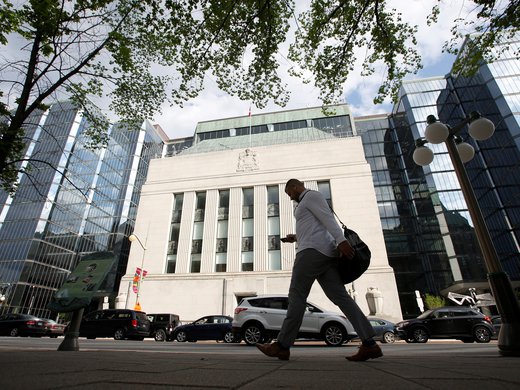If the data are mixed, then one can readily understand why the C.D. Howe’s Monetary Policy Council (MPC), on which I sit, has been divided of late. Some see the near future — the MPC provides a one year ahead interest rate track — as requiring a further tightening of monetary policy while others, myself included, see the future in bleaker terms. It is not just the continuing stalemate in Europe, the potential implications of the US elections or the possible slowdown in China that is prompting me to have a negative view of upcoming policy rates in Canada. It is mainly the combined consequences of what John Plender of FT calls "the greatest ever monetary experiment" and a monetary "beggar thy neighbour" type of policy that prompts me towards a very modest bias towards future policy rate reductions. Ultimately, I am not worried about a surge of inflation in the near future (i.e., over the coming year) — unless there is a temporary energy shock which central banks would accommodate — but the continuing inability of fiscal and monetary policies to work together combined with some skepticism about the ability of macro-prudential policies to prevent the "animal spirits" from returning. After all, that is another way to read the implications of the rise in the FCI.
When might I become a hawk again? If expectations of inflation quickly become unhinged then this would clearly indicate the need for tightening. If policy pronouncements indicating that a little more inflation is just the elixir needed to get some economies out of their debt-trap then this would indicate a weakening among decision-makers in their willingness to tolerate excessive inflation. I would certainly oppose this. Central bankers already find it difficult to explain, let alone communicate, the considerable risks about the near term impact of their existing policies. Convincing the public that inflation expectations unanchored from some numerical objective is easy to reign in would be considerably more difficult.
Regardless, the mixed message emanating from the Bank risks a loss of credibility that the central bank risks paying dearly for someday. A modest proposal is to ask central banks to state more clearly how and why monetary policy in exceptional times cannot be viewed in the manner we are accustomed to by looking, for example, at the state of inflation and excess capacity in the economy. Here too lurks a danger, namely the incentive for policy makers to argue that we are always in exceptional times.
The discussion about monetary policy in Canada has been largely unaffected by proposals to target nominal GDP or react to the unemployment rate. I hope to address these issues in future posts.


